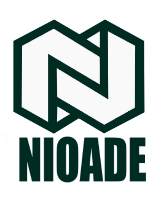The 4 Most Effective Incentives for Employees
In today’s competitive job market, attracting and retaining top talent requires more than just a paycheck. Companies need to create an environment where employees feel valued, motivated, and invested in the long-term success of the organization. One of the best ways to achieve this is through strategic incentive programs that align with employee needs and company goals.
Here are the four most effective incentives for employees:
1. Financial Rewards and Bonuses
Financial incentives remain one of the most powerful motivators for employees. Whether through bonuses, performance-based pay, or profit-sharing, monetary rewards are a tangible way to recognize hard work and commitment.
- Performance-Based Bonuses: Offering bonuses tied to individual or team performance motivates employees to work harder and focus on achieving specific goals. This could include meeting sales targets, hitting project deadlines, or exceeding productivity benchmarks.
- Profit-Sharing Programs: Profit-sharing programs give employees a stake in the success of the company. When employees know that their efforts directly contribute to the company’s bottom line—and that they’ll share in the profits—they tend to be more invested in the company’s growth and success.
- Stock Options: For startups and growing companies, offering stock options can be a significant long-term incentive. This gives employees the opportunity to benefit from the company’s future success, creating a sense of ownership and loyalty.
2. Career Development and Learning Opportunities
Investing in employees’ professional growth is a win-win strategy. When employees see that their employer is committed to helping them advance their skills and careers, they are more likely to stay with the company and perform at a higher level.
- Training Programs: Offering access to online courses, workshops, certifications, and industry conferences not only enhances employees’ skillsets but also boosts their confidence and engagement. Many companies provide paid access to platforms like Coursera, Udemy, or LinkedIn Learning.
- Mentorship and Coaching: Pairing employees with mentors within the company helps them navigate career challenges and fosters personal and professional growth. Having access to senior leaders can be a motivating factor for employees who are ambitious and eager to advance.
- Promotion Opportunities: Employees are more likely to stay engaged and loyal if they see a clear path to advancement within the organization. Offering internal promotion opportunities or lateral career moves helps maintain motivation and reduces turnover.
3. Flexible Work Arrangements
The rise of remote work has highlighted the importance of flexibility as a major employee incentive. Flexible work schedules and the ability to work from anywhere can greatly improve work-life balance, which is a priority for many employees today.
- Remote Work Options: Allowing employees to work remotely, either full-time or part-time, gives them the flexibility to work in environments where they are most productive. It also shows trust, which enhances job satisfaction and retention.
- Flexible Hours: Not all employees thrive in a 9-to-5 work schedule. Offering flexible working hours lets employees manage their work in a way that fits their personal lives, reducing stress and increasing productivity.
- Compressed Work Weeks: Some companies are experimenting with compressed work weeks, where employees work longer hours over fewer days (e.g., a four-day workweek). This incentive boosts morale and allows employees to spend more time on personal interests without sacrificing productivity.
4. Recognition and Appreciation
Non-monetary incentives are equally important when it comes to making employees feel valued. Recognition programs, praise, and appreciation can have a powerful impact on employee engagement and job satisfaction.
- Employee of the Month Programs: Recognizing top performers publicly through Employee of the Month programs or awards creates a culture of appreciation. Employees who feel valued are more likely to be loyal and engaged.
- Peer Recognition Programs: Encouraging peer-to-peer recognition through platforms like Bonusly or Workhuman allows employees to acknowledge each other’s contributions. This fosters teamwork, camaraderie, and a positive work environment.
- Personalized Appreciation: Sometimes, a simple thank-you note, verbal praise, or a personalized gift can go a long way in making an employee feel appreciated. Knowing that their hard work is recognized by management can inspire employees to continue going above and beyond.
Conclusion
Effective employee incentives go beyond monetary rewards. They encompass career development opportunities, flexible work options, and genuine recognition of effort. By offering a mix of these incentives, companies can create a positive work environment that fosters motivation, engagement, and loyalty. When employees feel both appreciated and empowered, they’re more likely to perform at their best and stay with the organization for the long haul.
Interested in optimizing your employee incentive strategy? Let us help you design an incentive program tailored to your company’s unique needs.






One comment
Stevie Harris V
January 25, 2018 at 9:35 am
Et veniam possimus voluptatum voluptatem excepturi qui. Unde eum ut architecto veritatis quia deserunt incidunt consequatur. In fugiat voluptatem porro distinctio deleniti quod labore. Ipsam quibusdam inventore enim molestiae ducimus perspiciatis omnis. Eos repellat enim qui sit eaque maiores.